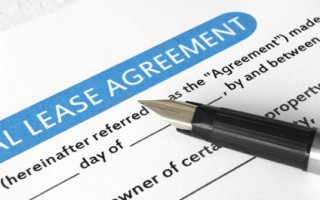Leasing a space for your dental practice is a major career decision that will have a far reaching impact upon your entire business. While the cost, size and location of a property are all important variables, other considerations should be carefully weighed before signing a lease.
Your search for office space should begin with the establishment of key steps which will serve to focus your efforts. These steps should include requirements to secure professional leasing advice as well as guidelines that make choosing a property a methodical, thoughtful process. In this post we will recommend a prudent approach to identifying a suitable property, securing a favorable lease agreement and moving into your new practice.

Define your professional and personal goals, then plot a course to get there. If you have not already done so, establishing these priorities now will help you define your ideal practice space.
Chose an experienced team of professionals. This should include legal, construction, leasing, design, finance and equipment experts. Seeking their guidance early will lessen the likelihood that you make a costly mistake.

Conduct the search using every resource available. Rely on your dental transition brokers to supply you with search resources.
Consider the geography. Where do you want your practice to be located, in a shopping mall, a professional complex or a free standing building? How many parking spots will you require?
Carefully vet the opportunities. Does a potential lease property meet your criteria or, if not, is it lacking in ways you are willing to compromise?
Examine the lease. What are the terms? Are there renewal options? Be certain to determine what maintenance the landlord is obligated to perform and what falls under your responsibility.
Negotiate and get everything in writing. Have a professional lease negotiator secure economic terms before the owner drafts the final lease agreement. Your attorney can then ensure that the owner/tenant relationship is explicitly defined in the lease.
While hiring a lease negotiator may strike you as an optional luxury, they actually play a vital role in protecting your interests during the drafting of the lease agreement. When dealing with an experienced landlord, it is mandatory that you have someone who understands the financial intricacies of the arrangement, and provides you the security of knowing that your interests are competently represented. Working with a seasoned negotiator will allow you to focus energies elsewhere, freeing you to devote time to other personal and professional responsibilities.
While a lease negotiator can provide excellent financial and legal protection against landlord abuses, the ultimate responsibility for understanding the terms of the lease falls upon the lessee. Be sure to carefully read every document and to ask questions if you need clarification of any kind.
The above recommendations serve as a guide when conducting your search for a lease space. While this list will help you get started, be sure to always consult your team of professional transition experts before committing to a property.




